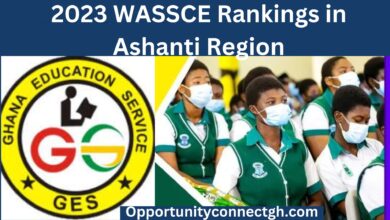Why Opt for a Technical University Over a Traditional University in Ghana?

Introduction
Overview of the Ghanaian Educational Landscape
Technical University. The educational landscape in Ghana is notably diverse, presenting students with options between traditional universities and technical universities. Initially, traditional universities in Ghana are renowned for their emphasis on theoretical knowledge, primarily focusing on a broad-based academic education. Historically, they have long been the established standard for higher education in the country.On the other hand, technical universities represent a more practical approach to learning, where the emphasis is on skill-based training.
Traditional University vs. Technical University
Traditional universities typically offer a wide range of academic disciplines. These ranges from humanities to pure sciences, often with a strong focus on theoretical learning. In contrast, technical universities are more career-oriented, providing hands-on experience and skills that are directly applicable in the workforce. The curriculum at a technical university is designed to align closely with industry requirements, making their graduates highly employable.
Thesis Statement
“Technical universities in Ghana stand out as a dynamic choice for students, particularly in this era that prioritizes practical skills and rapid employability. These institutions go beyond traditional education; they carve a direct path to career readiness and burgeoning job opportunities. Emphasizing hands-on training and skills pertinent to current industry demands, technical universities don’t just impart knowledge. They arm students with essential tools and experiences, ensuring they excel in today’s competitive job market.
Throughout this article, we will uncover why opting for a technical university can be a strategic move for Ghanaian students, especially for those eager to transition swiftly from academia to the workforce. We aim to demonstrate how technical universities effectively close the gap between academic theory and real-world job requirements. They offer an engaging mix of practical and theoretical learning, perfectly tailored to meet the evolving needs of today’s industries.”
Theoretical Focus of Traditional Universities in Ghana
Traditional University Approach in Ghana
Traditional universities in Ghana have long been characterized by their theoretical approach to education. Initially, these institutions prioritize academic knowledge, primarily focusing on the theoretical foundations of subjects. Consequently, the curriculum is often designed to provide a comprehensive understanding of concepts, theories, and principles. As a result, students spend a significant amount of time in lectures and seminars, actively engaging with abstract ideas and academic discourse.
Emphasis on Theoretical Learning
In traditional education settings, students actively develop a deep theoretical understanding. The courses focus on extensively exploring and analyzing the breadth and depth of various subjects. This method is especially prominent in fields like humanities, social sciences, and pure sciences.
Limitations in Terms of Job Readiness
While a strong theoretical foundation is undoubtedly valuable, this approach can have limitations when it comes to job readiness. Graduates from traditional universities may possess extensive knowledge in their field, but they often lack the practical skills and hands-on experience that are increasingly sought after in the job market. Employers today are not just looking for academic prowess; they seek candidates who can apply their knowledge in practical settings.
1. Gap Between Theory and Practice: There can be a significant gap between the theoretical knowledge acquired at traditional universities and the practical skills required in the workplace. This gap can pose challenges for graduates when they enter the job market, as they may find themselves underprepared for the practical demands of their roles.
2. Need for Additional Training: Graduates from traditional universities might require additional training or internships to gain the practical experience needed for their careers. This necessity can extend the transition period from education to employment.
Technical University: A Practical Approach to Education
Curriculum and Teaching Methodologies at Technical Universities
Technical universities in Ghana adopt a distinctly practical approach to education. The curriculum is meticulously designed to blend academic knowledge with hands-on skills. Unlike traditional universities, where the focus is largely on theoretical understanding, technical universities emphasize practical application. Courses are structured to include lab work, workshops, and practical sessions alongside classroom lectures.
Focus on Practical Skills
- Applied Learning: The core of a technical university’s curriculum is applied learning. Students engage in real-world scenarios and hands-on projects, applying theoretical knowledge to practical tasks.
- Laboratory and Workshop Training: Technical universities are equipped with state-of-the-art laboratories and workshops that simulate real industry environments. This setup allows students to gain firsthand experience with the tools and technologies they will encounter in their future workplaces.
Integration of Practical Skills with Academic Knowledge
Technical universities expertly integrate practical skills with academic learning. This integration is achieved through:
- Industry-Relevant Courses: The courses offered are closely aligned with industry demands, ensuring that the skills and knowledge imparted are relevant and up-to-date.
- Collaboration with Industry Experts: Many technical universities collaborate with industry professionals who bring practical insights into the classroom. Guest lectures, industry visits, and real-world case studies are common components of the curriculum.
- Project-Based Learning: Students often engage in project-based learning, where they tackle real-world problems, fostering skills such as problem-solving, critical thinking, and teamwork.
Practical Training as a Core Element
In technical universities, practical training is not just an add-on; it’s a core element of the educational experience. This focus on practical training ensures that graduates are job-ready and equipped with the skills that employers are looking for.
Employability of Graduates from Technical Universities
Employability Rate: Technical University vs. Traditional University
When it comes to the employability of graduates, technical universities in Ghana often have an edge over traditional universities. Statistics indicate that graduates from technical universities tend to find employment faster than their counterparts from traditional universities. This trend is attributed to the practical skills and hands-on experience that technical university students acquire. Employers increasingly favor candidates who can transition smoothly into the workplace with minimal training, a quality often found in graduates from technical institutions.
Comparative Statistics
- Higher Employment Rates: Various studies and labor market surveys in Ghana have shown that technical university graduates have higher employment rates in the first year after graduation compared to those from traditional universities.
- Shorter Job Search Duration: Graduates from technical universities often report shorter job search durations, indicating that their skills are in higher demand.
Success Stories from Technical University Graduates
Testimonials and case studies of successful graduates further underscore the value of a technical university education:
1. Case Study of an Engineering Graduate: A graduate from a well-known technical university in Ghana secured a position at a leading engineering firm within months of graduation. Their practical experience in handling real engineering projects during their studies was a key factor in their quick employment.
2. Testimonial from an IT Professional: A graduate from an information technology program at a technical university highlights how the hands-on coding and software development skills acquired helped them stand out in job interviews and secure a position in a competitive tech company.
3. Entrepreneurial Success: Another common trend is the entrepreneurial route taken by many technical university graduates. Equipped with practical skills, some have started successful businesses, contributing to the economy and creating employment.
Industry-Relevant Skills and Training at Technical Universities
Tailoring Programs to Job Market Demands
Technical universities in Ghana are renowned for their alignment with the current job market demands. They tailor their programs to ensure that the skills and training they offer are directly relevant to industry needs. This alignment is achieved through continuous collaboration with industry experts and employers to update curricula and introduce new, in-demand skills.
Adapting to Industry Changes
- Regular Curriculum Updates: Technical universities frequently update their curriculum to include new technologies and methodologies relevant to industry trends.
- Industry Feedback: Regular feedback from industry partners helps these institutions refine their courses to meet the evolving requirements of the job market.
Examples of Skills and Training Offered
Technical universities offer a range of skills and training programs that cater to various industries:
- Engineering and Technology: Programs often include practical training in the latest engineering software, hands-on experience in labs, and exposure to emerging fields like renewable energy and robotics.
- Information Technology: Courses offer training in software development, cybersecurity, data analytics, and network management, which are highly sought after in the tech industry.
- Business and Management: Training in entrepreneurship, project management, and digital marketing equips students with skills relevant for the modern business environment.
- Healthcare and Allied Sciences: Practical skills in healthcare technology, laboratory techniques, and patient care are emphasized in these programs.
- Creative and Applied Arts: Technical universities also offer training in areas like graphic design, fashion technology, and multimedia, focusing on practical design and production skills.
Practical Training Components
– Internships and Co-op Programs: Many technical university programs include internships or cooperative education components, allowing students to gain real-world experience as part of their studies.
– Project-Based Learning: Students engage in projects that simulate real-world challenges, developing problem-solving and critical thinking skills.
Bridging the Skills Gap: The Role of Technical Universities
Analyzing the Skills Gap in the Ghanaian Job Market
The Ghanaian job market, like many others, is facing a significant skills gap. This gap is characterized by a mismatch between the skills that employers need and the skills that graduates possess. Traditional universities, with their focus on theoretical knowledge, often produce graduates who are academically proficient but lack the practical skills required in the modern workplace. This disconnect has led to challenges in employment, with many graduates struggling to find work that aligns with their qualifications.
Technical Universities Addressing the Skills Gap
Technical universities in Ghana are strategically positioned to address this skills gap. Their curriculum is designed not only to impart knowledge but also to develop the practical skills that are in high demand in the job market. These institutions place a strong emphasis on hands-on training, ensuring that students are not just theoretically knowledgeable but also practically competent.
- Practical and Applied Learning: Technical universities focus on practical and applied learning, equipping students with job-ready skills.
- Industry Collaboration: By collaborating with industries, these universities stay abreast of the current skills needed in the market and adjust their curriculum accordingly.
- Technology Integration: Technical universities integrate the latest technologies and techniques in their teaching, ensuring students are familiar with current industry practices.
Preparing Students for Evolving Workforce Needs
The role of technical universities goes beyond just filling the current skills gap; they also prepare students for the evolving needs of the workforce. As industries and technologies advance, the demand for new skills emerges.
- Adaptability and Lifelong Learning: Technical universities teach students to be adaptable and committed to lifelong learning, key traits for navigating a rapidly changing job market.
- Innovation and Creativity: These institutions foster innovation and creativity, encouraging students to think critically and solve real-world problems.
- Entrepreneurial Skills: Many technical universities also focus on entrepreneurial skills, preparing students to not only be job seekers but also job creators.
Entrepreneurship and Innovation at Technical Universities
Fostering Entrepreneurial Spirit
Technical universities in Ghana are actively gaining recognition for nurturing entrepreneurship and innovation in their students. While traditional universities typically concentrate on equipping students for employment, technical universities inspire them to emerge as creators and innovators in their respective fields. This shift towards an entrepreneurial mindset is skillfully fostered by blending a dynamic curriculum, hands-on projects, and robust support systems.
Curriculum Designed for Innovation
- Practical Coursework: Technical universities incorporate practical coursework that challenges students to solve real-world problems, fostering a mindset of innovation and creativity.
- Entrepreneurial Courses: Many technical universities offer courses specifically in entrepreneurship, teaching students about business planning, startup strategies, and financial management.
- Interdisciplinary Approach: An interdisciplinary approach encourages students to think beyond the confines of their specific fields, leading to innovative ideas and solutions.
Supportive Ecosystems for Startups
Technical universities create ecosystems that support student-led startups and innovative projects.
- Incubation Centers: Many campuses have incubation centers where students can develop their ideas with access to resources, mentorship, and sometimes funding.
- Industry Partnerships: Collaborations with industry partners provide students with insights into market needs and opportunities to test their ideas in real-world scenarios.
Success Stories from Technical Universities
There are numerous success stories of student-led startups and innovative projects originating from technical universities in Ghana.
- Tech Startups: Several tech startups have been founded by students, focusing on areas like software development, renewable energy, and agricultural technology. These companies often start as class projects or ideas developed in university incubators.
- Innovative Solutions: Students have also been known to develop innovative solutions to local problems, such as creating more efficient machinery for agriculture or developing low-cost renewable energy solutions for communities.
Impact on the Economy
The entrepreneurial ventures and innovative projects emerging from technical universities have a significant impact on the Ghanaian economy. They not only create jobs but also contribute to solving some of the pressing challenges in the country.
Choosing the Right Path for Your Career: Technical University vs. Traditional University
Factors to Consider in Your Decision
- Career Objectives: Firstly, consider what you aim to achieve in your career. If you’re seeking a path that provides hands-on skills and immediate job readiness, then opting for a technical university could be more advantageous. Conversely, for careers necessitating extensive theoretical knowledge or in-depth research, a traditional university might be the preferable option.
- Learning Style: Reflect on your preferred learning style. If you thrive in a practical, hands-on learning environment, a technical university is likely to suit you best. If you prefer academic research and theoretical learning, consider a traditional university.
- Industry Requirements: Research the requirements of the industry you’re interested in. Some industries might favor the practical skills offered by technical universities, while others might value the depth of knowledge provided by traditional universities.
Aligning Career Goals with Educational Paths
Making an informed decision involves aligning your long-term career goals with the educational path you choose.
- Evaluate Long-Term Goals: Think about where you want to be in five or ten years. Which educational path will best equip you to reach these goals?
- Seek Advice: Consult with career counselors, industry professionals, and alumni from both types of institutions. Their experiences and insights can provide valuable guidance.
- Consider the Future of Your Field: Look at the trends and future predictions of your chosen field. Some sectors are evolving to favor technical skills, which may influence your decision.
Call to Action
Engage in the Conversation
We encourage our readers to actively participate in this important discussion. Are you considering a technical university or a traditional university? What factors are influencing your decision? Share your thoughts and experiences in the comments below.
Join Us in Shaping Futures
Your input can make a significant difference in helping students make informed decisions about their education and career paths. Join us in this conversation and let’s collectively guide students in Ghana towards successful and fulfilling futures.




